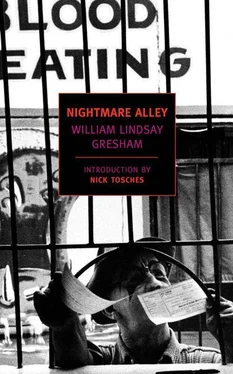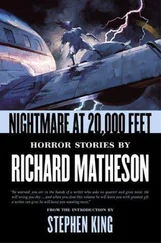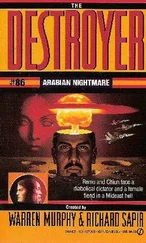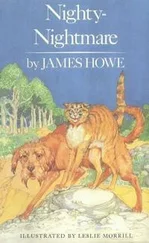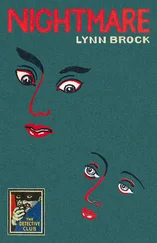“You mean you’re a spiritualist? You believe the dead come back?”
Stan forced a smile, his eyes wandering up to the ceiling where cracks made the outline of an old man’s face. The sun was slanting through the window now and night was coming but not fast enough. He came back with a start.
“I’m not going to try converting you, Dad. I am secure in my faith. Many others share my views, but I am no proselytizer.”
His father was silent for a time, swallowing uneasily. His head seemed to nod back and forth a fraction of an inch as he sat, a quick, rhythmic, involuntary nod of weakness. “Well, everybody to his own faith. I don’t hold with spiritualism much. But if you’re convinced, that’s all that matters. Real estate is all shot, here in this town, son. If I was younger I’d pull out. Town’s dying. I been trying to get the Civic Betterment Committee to put on a little campaign-make it a good, open-shop town and no nonsense. Attract industry. But they don’t listen. Property values way down-Oh, here’s Clara. Reckon it’s most suppertime. We been talking so much.”
“I’ll wash up and be right down,” Stan said. The load of weariness- There was a place where he might leave it, where it might slip from him like a weight cut from his neck.
In the hall he turned left and his hand was reaching for the knob when, with a cold flash, he realized that he was facing a smooth, papered wall. The attic door was not there! Looking down, he saw a single step at the bottom of the wall. So that was it-the stairs outside. It was an apartment now, cut off from the rest of the house. Strangers living in it, under the slope of the roof, around the brick chimney. The iron bed, the silk patchwork, smell of camphor and silk and lumber and the tight mesh of maple leaves below, seen through the narrow windows where you could make out the signboard on the lawn of the church. The house was dying, too.
Stan closed the bathroom door and locked it. The same taps on the washbowl anyhow, even though the walls were painted a different color. And the odd mix-up of tiles in the floor, where he used to find half-tiles and try to count them. The old-fashioned tub on its high legs; marble-topped commode with its old-fashioned mahogany drawers; shaving stand with its circular cabinet and a mirror on a swivel, where Dad kept his shaving brush, his mug and his soap, his hones.
Stan wondered if the water still made the sharp sucking gurgle in the tub when the stopper was pulled out-as it did when his mother had finished splashing and singing to herself. He recalled the day when he had fallen out of the tree, and Mother had picked him up in her arms and carried him upstairs, bleeding all down the front of her dress. She hadn’t minded the dress getting messed up. He had made leggings of corrugated cardboard, like explorers wear in the jungle. One of them had been bloody; after the doctor had sewed up the cut in his forehead Mother undressed him, taking the cardboard leggings off carefully. She had put them on the marble top of the commode. They stayed there for a long time, until the blood stains became black. Jennie finally threw them out-said they gave her the jimjams.
If only they could all have stayed together a few more years. If Mother had not minded the town. If Dad had always been as weak and as friendly as he was now that he was dying. If only he could have been dying for twenty years, Stan might have loved him. Now there was nothing but the old things, and they were going past him and would soon be gone.
He drew his breath and tried again to strain his shoulders back. I mustn’t forget to ask the old man about the church and how to go about selling it when it’s time to pull out. But the Church of the Heavenly Message seemed too far away to matter, now. The old man was slipping into that dark hole where you fall and fall forever because there’s no bottom to it. We are all creeping to its edge, some slowly, some, like the old man, balanced on the brink. And then what? Like the rush of wind past a bullet, probably, forever and ever. Gyp was dead all these years. Even the memories of him were dead and forgotten except in one mind. And when that was gone Gyp would be forgotten entirely. When the old man was dead and under ground Stan could forgive it.
Gyp never knew what hit him. They said the vet just put chloroform on a rag and dropped it in the box.
But that end of rope, tied to the leg of the workbench in the garage-it had been cut when Stan came home from school. Why did they tie Gyp up in there if they wanted to get rid of him? There was no they. Only he. Gyp had a chain on his kennel. Why the rope?
Oh, Christ, let me get to hell out of here. But the voice that had said “son” held him. The house was swallowing him. And they had sealed up the attic door; there was no way. All the years had dropped off, tearing with them his poise, so carefully built up tone by tone. They had taken his cleverness, his smile, his hypnotic glance, leaving him powerless and trapped inside the walls of old familiarity.
He had come back because Dad was dying and Mother was gone and the maples were cut down, the square still visible where Gyp’s kennel had stood, and the shaving stand on its smooth pillar of wood, still in the same place and still smooth under his hand, smelling sweetly of shaving soap.
The strop.
It hung from the brass hook where it had always hung. It was smooth, black with handling and with oil, shining.
The garage at night with the moonlight making bars of silver across the floor, silvering the workbench, sparkling on the bar of the vise and on the lidless coffee cans of nails and bolts. Shining blue and cold on the concrete floor. And the shadows hiding dread and shame.
“Take down your pants.”
That was to add to the shame: nakedness.
Stan fumbled with the belt of his knickers, stalling for split seconds.
“Hurry up. I said drop ’em.”
His knickers bound his feet about the ankles. He couldn’t run. He had to take it. “Now bend over.” A hand on his shoulder pushed him into the patch of moonlight, where his nakedness could show. Stan saw the shadow of the strop rise and braced himself. The pain split its way up to his brain in waves and he bit his lip, his breath catching at the bottom of his lungs. He pushed his knuckles in his mouth so they wouldn’t hear him next door. The moonlight was a fuzzy blur of tears; and the strop, when it struck the roundness of his bare flesh, made a sound that got to his brain before the stab of pain-and the rope’s end, tied to the leg of the workbench there in the smell of oil and gasoline on the day when the sun went out.
Downstairs Charlie Carlisle fidgeted with his napkin, pushing himself back in the chair by bracing his hands against its polished arms. “Confound it, Clara, what d’you s’pose the boy’s doing up there? Oh, there you are, son. Sit right down.”
When Charlie raised his glance to the man who entered the dining room he caught his old, quick breath at something he saw. It was Stan, much as he had appeared a few minutes before. Maybe with his face fresh-washed and his hair damped down a little. But in the set of the shoulders was something strange. And when old Charlie met his son’s eyes they were a sharper blue than any he had ever seen before; as hard as a frozen pond.
The Great Stanton pulled back a chair and sat down swiftly and gracefully, opening his napkin with a single snap. Mrs. Carlisle brought in a platter of chicken. When rice and gravy arrived Charlie said, “Sit down, Clara. Quit running in and out. Stan’ll pronounce the blessing.”
The Rev. Carlisle ran his hands once over his hair and took a deep breath. His voice came resonantly:
“Almighty God, our heavenly father, we thank Thee from the bottom of our hearts for what we are about to receive. We come to Thee steeped in sin and corruption, our hearts black with guilt, knowing that in the river of Thy forgiveness they will be washed as white as snow.”
Читать дальше
